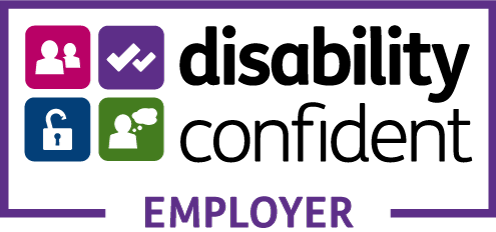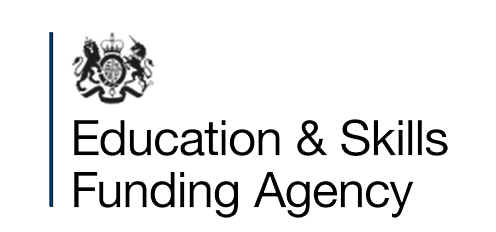WS Training is affiliated and associated with the following organisations:





ST0384/01
Apprenticeship Standard for Team Leader/Supervisor
A team leader/supervisor is a first line management role, with operational/project responsibilities or responsibility for managing a team to deliver a clearly defined outcome. They provide direction, instructions and guidance to ensure the achievement of set goals. Working in the private, public or third sector and in all sizes of organisation, specific responsibilities will vary, but the knowledge, skills and behaviours needed will be the same whatever the role.
Key responsibilities are likely to include supporting, managing and developing team members, managing projects, planning and monitoring workloads and resources, delivering operational plans, resolving problems, and building relationships internally and externally.
Roles/Occupations may include: Supervisor, Team Leader, Project Officer, Shift Supervisor, Foreperson, and Shift Manager.
The entry requirement for this apprenticeship will be decided by each employer, but may typically be five GCSEs at Grade C or higher.
| Knowledge | What is required (through formal learning and applied according to business environment) |
|---|---|
| Interpersonal excellence – managing people and developing relationships | |
| Leading People | Understand different leadership styles and the benefits of coaching to support people and improve performance. Understand organisational cultures, equality, diversity and inclusion. |
| Managing People | Understand people and team management models, including team dynamics and motivation techniques. Understand HR systems and legal requirements, and performance management |
| Building Relationships | Understand approaches to customer and stakeholder relationship management, including emotional intelligence and managing conflict. Know how to facilitate cross team working to support delivery of organisational objectives. |
| Communication | Understand different forms of communication and their application. Know how to chair meetings, hold challenging conversations, provide constructive feedback and understand how to raise concerns. |
| Organisational Performance - delivering results | |
| Operational Management | Understand how organisational strategy is developed. Know how to implement operational/team plans and manage resources and approaches to managing change within the team. Understand data management, and the use of different technologies in business. |
| Project Management | Understand the project lifecycle and roles. Know how to deliver a project including: managing resources, identifying risks and issues, using relevant project management tools. |
| Finance | Understand organisational governance and compliance, and how to deliver Value for Money. Know how to monitor budgets to ensure efficiencies and that costs do not overrun. |
| Personal Effectiveness – managing self | |
| Awareness of Self | Know how to be self-aware and understand unconscious bias and inclusivity. |
| Management of Self | Understand time management techniques and tools, and how to prioritise activities and approaches to planning |
| Decision Making | Understand problem solving and decision making techniques, and how to analyse data to support decision making. |
techniques including setting goals and objectives, conducting appraisals, reviewing performance, absence management, providing constructive feedback, and recognising achievement and good behaviour.
Understand learning styles, feedback mechanisms and how to use emotional intelligence
© Crown copyright 2016 You may re-use this information (not including logos) free of charge in any format or medium, under the terms of the Open Government Licence. Visit www.nationalarchives.gov.uk/doc/open-government-licence
ST0384/01
| Skills | What is required (acquired and demonstrated through continuous professional development) |
|---|---|
| Interpersonal excellence – managing people and developing relationships | |
| Leading People | Able to communicate organisation strategy and team purpose, and adapt style to suit the audience. Support the development of the team and people through coaching, role modelling values and behaviours, and managing change effectively. |
| Managing People | Able to build a high-performing team by supporting and developing individuals, and motivating them to achieve. Able to set operational and personal goals and objectives and monitor progress, providing clear guidance and feedback. |
| Building Relationships | Building trust with and across the team, using effective negotiation and influencing skills, and managing any conflicts. Able to input to discussions and provide feedback (to team and more widely), and identify and share good practice across teams. Building relationships with customers and managing these effectively. |
| Communication | Able to communicate effectively (verbal, written, digital), chair meetings and present to team and management. Use of active listening and provision of constructive feedback. |
| Organisational Performance – delivering results | |
| Operational Management | Able to communicate organisational strategy and deliver against operational plans, translating goals into deliverable actions for the team, and monitoring outcomes. Able to adapt to change, identifying challenges and solutions. Ability to organise, prioritise and allocate work, and effectively use resources. Able to collate and analyse data, and create reports. |
| Project Management | Able to organise, manage resources and risk, and monitor progress to deliver against the project plan. Ability to use relevant project management tools, and take corrective action to ensure successful project delivery. |
| Finance | Applying organisational governance and compliance requirements to ensure effective budget controls. |
| Personal Effectiveness – managing self | |
| Self-Awareness | Able to reflect on own performance, seek feedback, understand why things happen, and make timely changes by applying learning from feedback received. |
| Management of Self | Able to create an effective personal development plan, and use time management techniques to manage workload and pressure. |
| Decision Making | Use of effective problem solving techniques to make decisions relating to delivery using information from the team and others, and able to escalate issues when required. |
| Behaviours | What is required (developed and exhibited in the workplace) |
| Takes responsibility | Drive to achieve in all aspects of work. Demonstrates resilience and accountability. Determination when managing difficult situations. |
| Inclusive | Open, approachable, authentic, and able to build trust with others. Seeks views of others. |
| Agile | Flexible to the needs of the organisation. Is creative, innovative and enterprising when seeking solutions to business needs. Positive and adaptable, responds well to feedback and need for change. |
| Professionalism | Sets an example, and is fair, consistent and impartial. Open and honest. Operates within organisational values |
Duration - Typically this apprenticeship will take 12 – 18 months
Qualifications – Apprentices without level 2 English and Maths will need to achieve this level prior to taking the end-point assessment.
Progression – On completion, apprentices may choose to register as Associate members with the Chartered Management Institute and/or the Institute of Leadership & Management, to support their professional career development and progression.
Level - Level 3.
Review date - This standard should be reviewed within three years of its approval.
© Crown copyright 2016 You may re-use this information (not including logos) free of charge in any format or medium, under the terms of the Open Government Licence. Visit www.nationalarchives.gov.uk/doc/open-government-licence




